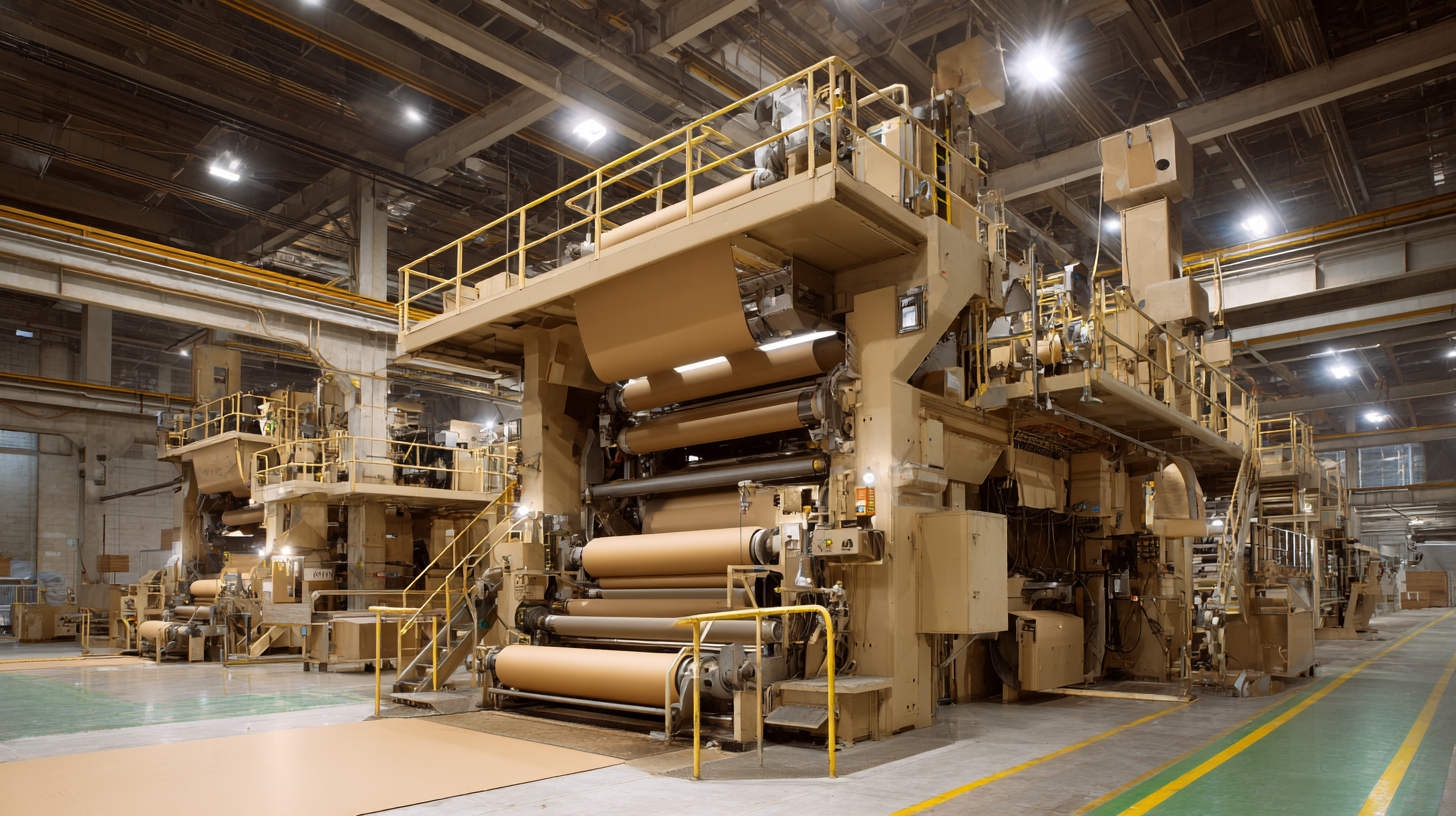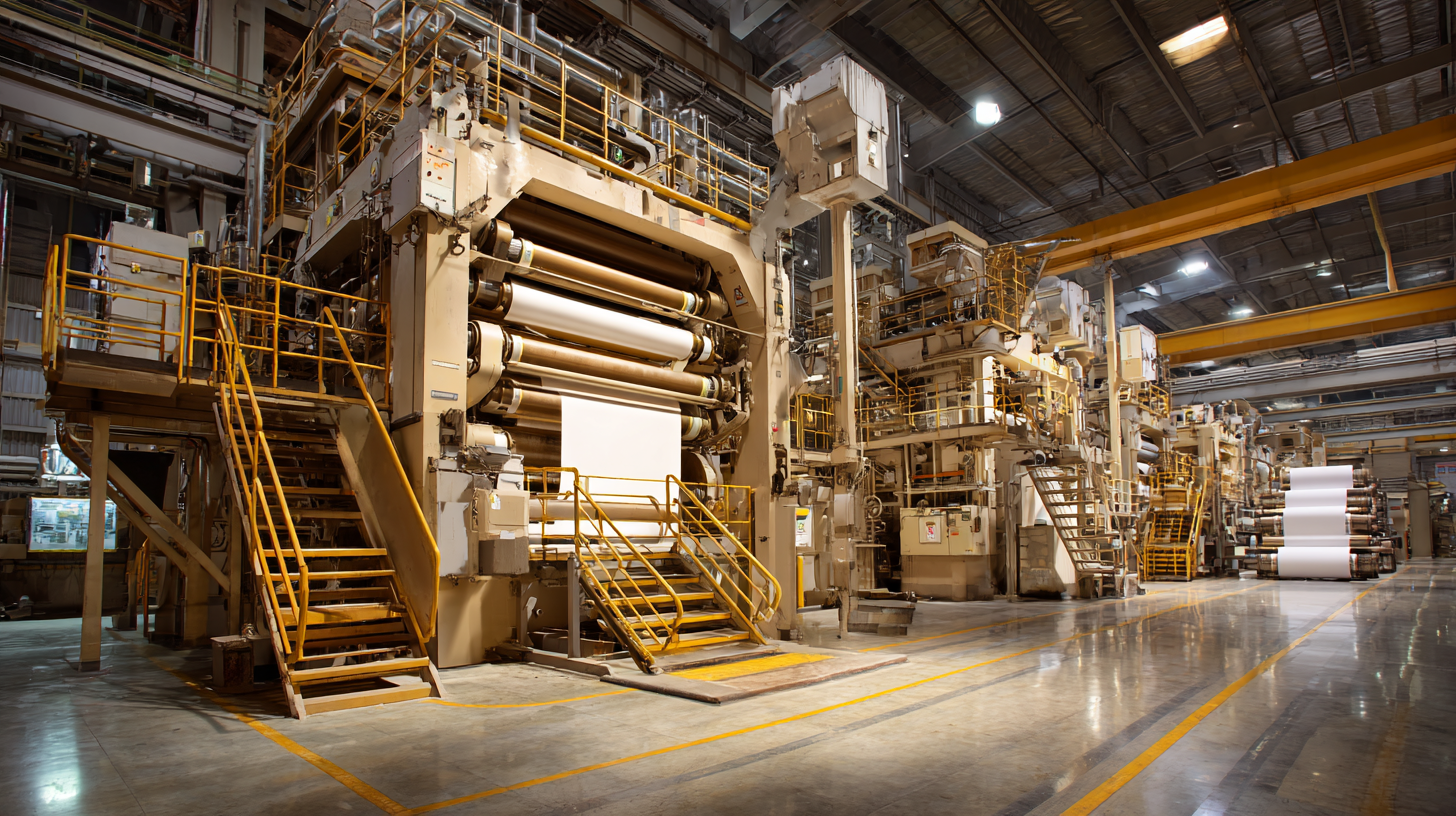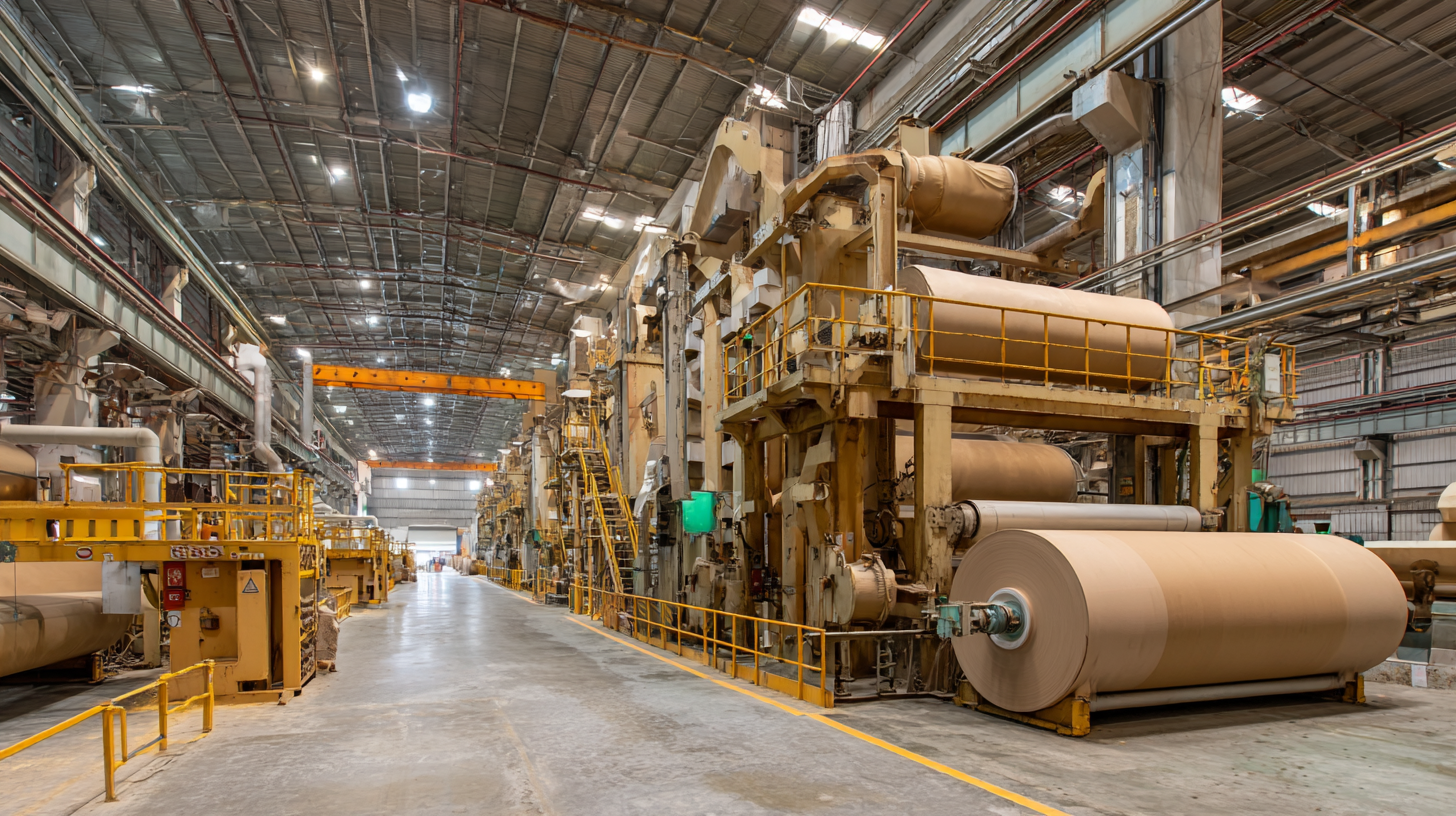
Ultimate Checklist for Choosing the Best Kraft Paper Machine for Your Business
In the rapidly evolving paper production industry, selecting the right Kraft Paper Machine is crucial for businesses aiming to enhance their operational efficiency and sustainability. With the global demand for kraft paper projected to reach 30 million metric tons by 2025, driven by the increasing use of eco-friendly packaging solutions, manufacturers must prioritize advanced technology and reliability in their machinery choices. According to a recent industry report by Smithers, the kraft paper market is expected to witness a growth rate of 5.1% annually as more companies shift towards sustainable practices and recyclable materials. Therefore, understanding the features, specifications, and benefits of various Kraft Paper Machines is essential for businesses to meet market demands while fostering environmental stewardship.

Identifying Key Features of High-Quality Kraft Paper Machines
 When selecting a high-quality kraft paper machine for your business, it's essential to identify the key features that will impact both production efficiency and product quality. One of the most critical aspects to consider is the machine's capacity and throughput. A machine that aligns with your production requirements ensures that you can meet market demands without compromising on quality.
Additionally, the machine's ability to handle various types of raw materials can provide flexibility for your production processes, allowing for the creation of diverse kraft paper products.
When selecting a high-quality kraft paper machine for your business, it's essential to identify the key features that will impact both production efficiency and product quality. One of the most critical aspects to consider is the machine's capacity and throughput. A machine that aligns with your production requirements ensures that you can meet market demands without compromising on quality.
Additionally, the machine's ability to handle various types of raw materials can provide flexibility for your production processes, allowing for the creation of diverse kraft paper products.
Another essential feature is the technology and automation level of the machine. Advanced machines equipped with modern control systems can streamline operations, reduce labor costs, and enhance overall productivity. Look for features such as online monitoring and diagnostics, which help in maintaining optimal performance and minimizing downtime. Lastly, consider the machine’s environmental impact; choosing models that incorporate energy-efficient designs and reduce waste can lead to significant cost savings and a smaller ecological footprint. Investing time in evaluating these key features will ultimately lead to a smarter purchase decision for your business.
Evaluating Manufacturer Experience and Reputation in the Industry
When selecting a Kraft paper machine for your business, evaluating the manufacturer's experience and reputation is critical. According to a report by Smithers Pira, the global demand for Kraft paper is expected to reach 51 million tons by 2025, with increasing emphasis on sustainable packaging. Manufacturers with extensive industry experience tend to have a deeper understanding of market trends and technological advancements, which can be invaluable in navigating this evolving landscape.

Moreover, industry reputation can be a strong indicator of quality and service. A study highlighted by the Paper and Board Association indicates that customer satisfaction correlates with the manufacturer's history of delivering high-performance machines. Research suggests that manufacturers whose reputation is built on consistent product reliability and effective customer service see a higher rate of repeat business. Engaging with industry peers and consulting case studies can help ascertain a manufacturer's standing in the market.
When investing in a Kraft paper machine, prioritizing experience and reputation can lead to better long-term business outcomes and satisfaction.
Understanding the Importance of Customization Options for Your Needs
When selecting a kraft paper machine, customization options are paramount. A tailored approach allows businesses to meet specific production needs while enhancing efficiency and product quality. According to a report by MarketsandMarkets, the kraft paper market is projected to reach $139 billion by 2025, driven largely by the increasing demand for sustainable packaging solutions. Customization plays a significant role in this growth, as manufacturers who invest in versatile machinery can offer a wider range of products, including varying grammages and finishes that appeal to diverse consumer preferences.
Moreover, the importance of customization extends beyond product offerings. A study from Smithers Pira indicates that personalized production capabilities can increase plant efficiency by up to 30%. By choosing a kraft paper machine that supports customizable settings, businesses can optimize their operations, reduce waste, and respond quicker to market demands. This flexibility not only improves profitability but also positions companies as innovative players in an industry that increasingly values sustainable practices and customer-centric solutions. Emphasizing customization ensures that businesses can adapt and thrive in a competitive landscape.
Ultimate Checklist for Choosing the Best Kraft Paper Machine
Assessing After-Sales Support and Maintenance Services Offered
When selecting a Kraft paper machine for your business, assessing after-sales support and maintenance services is crucial. A recent report by MarketsandMarkets indicates that the global paper industry is expected to grow from $500 billion in 2021 to over $600 billion by 2026. This growth highlights the importance of investing in reliable machinery backed by comprehensive support services. Companies that prioritize after-sales support can significantly reduce downtime, which is essential for maintaining production efficiency. Effective training programs and responsive customer service teams are integral components of quality after-sales support.
Furthermore, the maintenance services offered by manufacturers can greatly influence the long-term performance of your Kraft paper machine. According to a study by Smithers Pira, around 70% of manufacturing delays are attributed to equipment failures, underscoring the need for a proactive maintenance strategy. Regular inspections, timely parts replacement, and access to expert technicians not only prolong the lifespan of the machinery but also enhance overall productivity. Therefore, when evaluating potential suppliers, it's vital to inquire about their maintenance packages and the availability of spare parts, ensuring that your operation remains competitive and efficient in a rapidly evolving market.
Ultimate Checklist for Choosing the Best Kraft Paper Machine for Your Business - Assessing After-Sales Support and Maintenance Services Offered
| Criteria | Description | Rating (1-5) |
|---|---|---|
| Technical Support Availability | Availability of technical support team via phone, email, or chat. | 4 |
| Maintenance Services | Frequency and thoroughness of scheduled maintenance services offered. | 5 |
| Response Time | Average time taken to respond to maintenance requests or support inquiries. | 3 |
| Spare Parts Availability | Accessibility and stock levels of essential spare parts for the machine. | 4 |
| Customer Feedback | Quality of customer reviews and testimonials regarding support and maintenance. | 5 |
| Training Programs | Availability of training programs for staff on machine operation and upkeep. | 4 |
| Warranty Terms | Details of warranty coverage and duration concerning repairs and parts. | 4 |
Comparing Costs and Return on Investment for Different Machines
When selecting the best Kraft paper machine for your business, understanding the costs and return on investment (ROI) for different machines is crucial. According to a market research report by Smithers Pira, the global demand for Kraft paper is projected to grow at a CAGR of 3.5% by 2025, indicating a promising investment opportunity. However, the initial purchase cost can significantly vary, with high-capacity machines priced between $250,000 and $1 million depending on features, such as automation and production output.
Evaluating ROI should not only factor in the purchase price but also operational efficiency. The same Smithers Pira report highlights that state-of-the-art machines can reduce energy consumption by up to 30%, leading to cost savings that enhance profitability over time. For instance, a machine with an annual production capacity of 50 tons can save an estimated $15,000 per year in energy costs compared to older models. This long-term financial benefit must be weighed against initial costs to make an informed decision that aligns with your business goals.